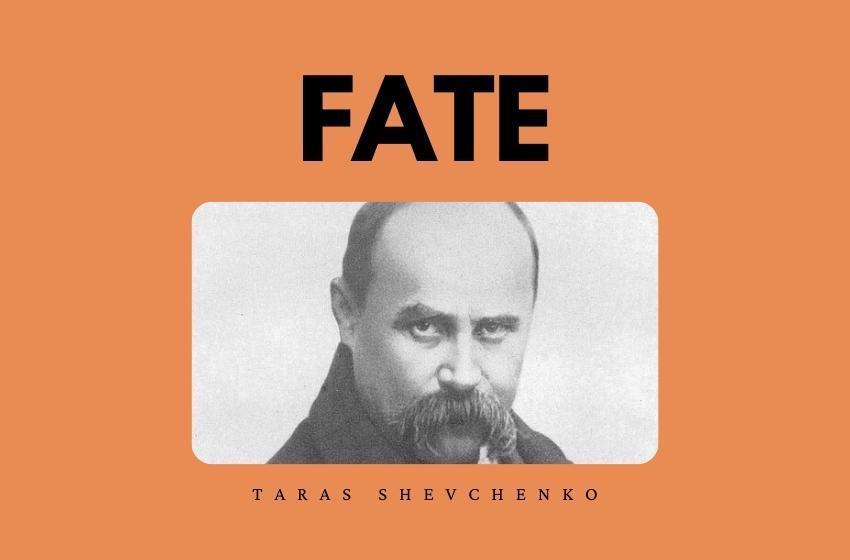It is hard to think how Petya would have got through the following day if the watering of the orchard had not started again.
Petya stood zealously turning the cistern handle to pull up the bucket, then letting the water out into the tank from which it was carried all over the garden. He had himself volunteered for this tiring, monotonous job which would leave his mind free to think of the rendezvous.
The unoiled axle of the latticed iron drum squealed mournfully. The chain rattled crisply as it wound and unwound. The heavy bucket crawled slowly up, the falling drops sounding metallically hard in the echoing darkness of the cistern, then it raced down again, dragging the wet chain after it, so that the drum whirled wildly round and one had to skip aside pretty quickly to avoid a sharp blow from the handle.
His arms and back ached, his shirt was soaking, sweat ran down his face and dripped from his chin, but Petya went on working, refusing to rest. He was in a state of bliss which at one moment nearly turned to despair when the day darkened, clouds came rolling up and a few drops fell, promising a downpour in the evening that would put any meeting on the steppe out of the question. However, the rain passed over, the clouds dispersed and towards evening a
cool breeze sprang up—a most fortunate circumstance, since it allowed him to put on his cape.
When Petya, after making a wide detour for caution's sake, came to the little path by the cottage, the setting sun was blazing over the steppe and his shadow was so long that it looked as though he were on stilts.
The monastery bells were ringing for vespers. From the distance came the melancholy song of reapers. The white wall of the cottage was tinted pink by the sun and the windows were a blinding gold. Petya's hands were like ice, and his mouth felt cold, as though he had been sucking peppermints.
Without any real reason for it, Petya had told himself that she would most certainly come. But although he would not for the world have admitted it, a secret doubt lurked at the bottom of his heart.
He Lay prone on the grass, his chin resting on his fists, staring at the cottage as though by sheer force of will he could compel her now, this very moment, to come out on the steppe. Actually, this already was not love but insistent pride, not passion but obstinacy; it was an aimless turbulence of spirit, the wish to bring his ideal down from heaven to earth and assure himself that Marina was not a scrap better than other girls—for instance, Motya— probably worse. And yet his imagination still enthroned her as the only one, the unattainable one, despite the sty and that chin like the toe of a shoe—and perhaps even because of that.
Suddenly, between waves of despair and hope, he saw the familiar figure pass the cottage, up to the waist in wormwood; he could hardly believe his eyes, so great was his happiness. Marina came to him quickly, almost too quickly, shading her eyes with her hand from the sun that beat straight into her face. She was in a short summer coat with the collar raised, and her hair was done a new way; the same black bow was there, but a sprig of jasmine had been added.
"Good evening," she said, holding out her hand to Petya. "I had an awful job getting away. You've no idea what Mum's like. You'll see, she'll call me back at once. Come along quick."
She smiled and walked along the path leading into the steppe, followed by Petya, who was knocked right off his balance and even disappointed by her confident ease, and especially by her frankly mischievous smile.
Whatever he had expected, it had been something very different—shyness, embarrassment, silent reproach, even severity—but most certainly not this. One might think she had only been waiting for the chance to run out to meet a boy!
She did not even ask why he wanted her to come. And that jasmine in her hair! Petya could see now that she was small only in size, in age she must be fifteen; and she had probably had plenty of experience in love affairs—perhaps she had
even been kissed.
In general, it was as though she had suddenly turned into her own elder sister.
"Aren't you hot in that cape?" she asked, glancing round.
"Aren't you hot in your coat?" Petya retorted dully.
Evidently she did not understand irony, for she answered, "It's a summer coat, your cape's a heavy woollen one."
"A Swiss cape, specially for the mountains!" remarked Petya, not without a boastful note.
"Yes, I see that," answered Marina.
When they were a good distance from the house, they left the path and strolled slowly side by side among the suslik holes and wild flowers, which threw down long shadows. For a time they said nothing, listening to the rustle of the grass and flowers under their feet.
The sun sank behind a distant barrow. A cool breeze rose.
"Are you fond of the steppe?" asked Marina.
"I love the mountains," Petya answered sombrely.
He had not the faintest idea how he ought to proceed now. He had got what he wanted, this was a real 'rendezvous, it was even more—a long walk out on the steppe at sunset. But all the same he was awkward and embarrassed. In some
way she had got the upper hand over him in the first moment. And well he knew it.
"I love the steppe," said Marina, "though I like mountains too."
"No, the mountains are finer," said Petya stubbornly.
He had never in his life found it so difficult to talk to a girl. How much easier it had been with Motya, for instance. Of course, Motya loved him, while this one—you couldn't guess. ... But the worst of all was that she did not display the
faintest desire to know why he had asked her to meet him. What was that — pretence or indifference?
With every moment that passed he loved her more, he was most desperately in love. And not at all as he had been before, he was no longer in love with a faraway dream, but with an enchantingly close reality.
As they strolled along she would now and then give a little laugh without any visible reason, and that teasing laughter seemed very familiar to Petya, although he could not for the life of him remember where and when he had heard it.
"Just wait, my dear," thought Petya, admiring Marina's pretty head with the black ribbon and the sprig of jasmine. "Just wait, we'll see what song you'll sing in a little while."
"Just imagine," he said with a crooked, sarcastic smile, "once upon a time I was most tremendously in love with you."
"You—with me?" asked Marina in surprise and shrugged her shoulders.
"When could that have been?"
"A long time ago. Last year," sighed Petya. "And you, I suppose, you never even guessed?"
She halted and looked up at him with grave probing eyes.
"That is quite impossible."
"But it was so."
"Where, and when?"
Petya looked at her with tender reproach and said very slowly and distinctly,
"June. Italy. Naples. The railway station. Can you deny it?"
In an instant Marina's face changed completely; she looked serious, alarmed. Her colour mounted.
"You're making a mistake," she said curtly, with a look that seemed to shut him out at once. "We've never been in Italy ... or any other foreign country." Petya knew this was not true.
"Yes, you have, you were wearing the same coat and the same black bow in your hair!" he cried eagerly. "You walked along the platform with your mother. And Maxim Gorky was there. Our train started and I leaned out of the window
and looked at you, and you looked back at me. Wasn't that so? Didn't you look at me? Can you deny it?"
She frowned and shook her head in silence, but the deep colour did not leave her face, even her chin was red. She was beginning to be angry.
"Can you deny it? Can you?" Petya insisted.
"Nothing of the kind ever happened, you've just dreamed it!"
"I even know where you were going. Shall I tell you? Well? To Paris!" cried Petya with a kind of bitter triumph.
She shook her head land the colour began to leave her face.
"Marie Rose, Longjumeau," said Petya softly, impressively, looking bard into her eyes and enjoying her discomfiture.
She turned so pale that Petya was frightened. Then her face stiffened in a look of contempt.
"You're making it all up," she said carelessly and even forced herself to laugh, a strange laugh that sounded so familiar.
Suddenly he realized it was Vera's mermaid laugh from The Precipice, and he himself was the miserable Raisky.
"Remember once and for all that nothing of the sort ever happened," Marina said. She turned and walked rapidly back towards the house.
Petya ran after her.
"Don't follow me," she said without turning.
"Marina, wait a bit ... but why?" Petya groaned piteously.
She turned, let her eyes travel over him from head to foot with a contemptuous look, said, "Babbler!" and ran home.
Petya had never expected the long-awaited rendezvous to end in fiasco. He was completely puzzled by her anger. All he knew was that he had lost her, if not for ever, at least for a very long time. And when? At the very moment everything was perfect, when dusk was creeping over the steppe and a great moon hung over the distant hills, with a pale light like the glow of a paper lantern.
1956
Translated by Fainna Solasko and Eve Manning





















